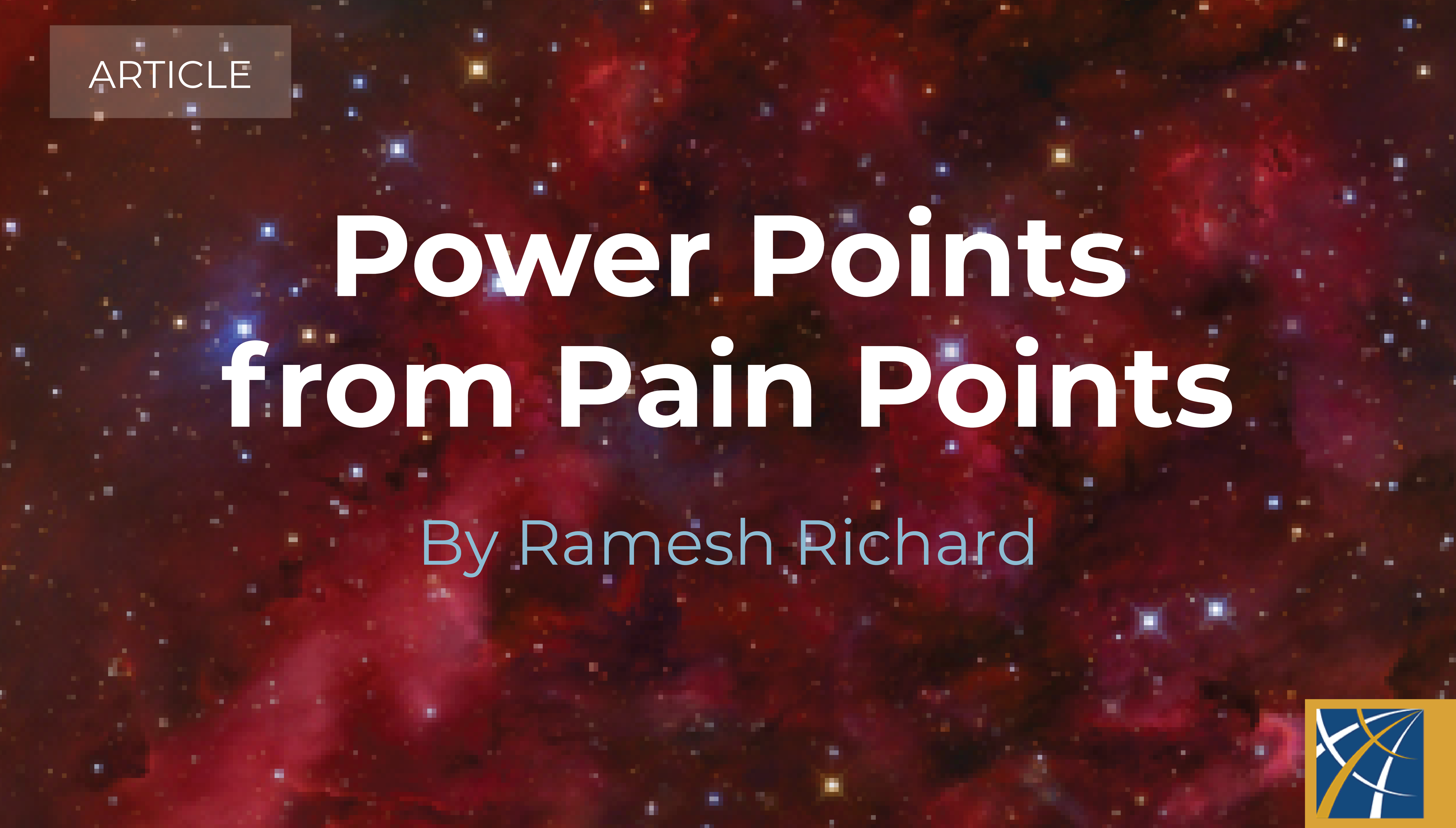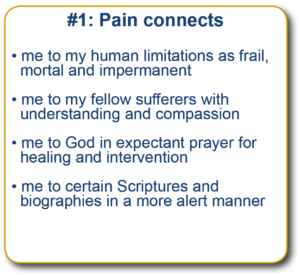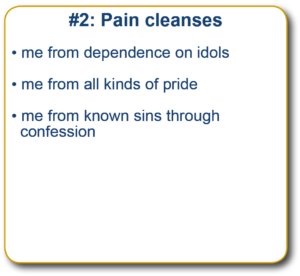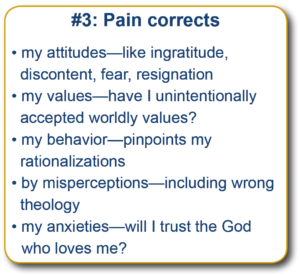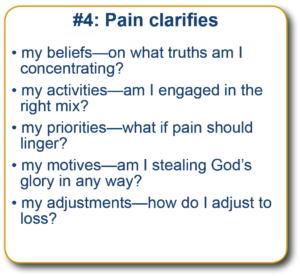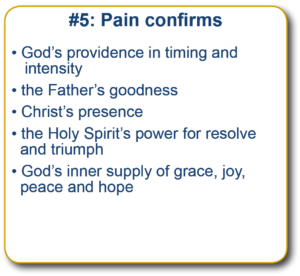by Ramesh Richard
The number one request I receive after classes is simply: “Can we have your PowerPoint?” You know PowerPoint presentations have become ubiquitous for communicators. To visually oriented audiences, PowerPoint slides help move a presentation forward, aid comprehension and enhance memory of major points.
Traveling to remote places as I do, PowerPoint presentations can become points of pain. Once, my international hosts assured me before an event that they had PowerPoint. When I reached the classroom, they pointed me to the electrical power outlet on the wall!
Life’s problems, whether real or perceived, often linger and cause true discomfort. Entrepreneurs call these problems “pain points”—and see them as opportunities. The Bible too sees a pain point as an opportunity to manifest its power.
The Power of Pain
A recent surprise gift of physical pain has made for an intense three weeks that I am not fully past even as I write these thoughts. Before speaking two weeks ago, this gift of great physical discomfort forced me to slip into the restroom for a moment of privacy to rehearse these biblical convictions in my loudest whisper: “Your power is made perfect in my weakness; Your power will be revealed in my weakness; Your grace will be sufficient for the assignment.” God gave me grace just enough to address a small group of 32 influential opinion leaders, 31 of whom were unbelievers.
We can let our pain points remain problems, or we can allow them to become points of power—power points that present God’s strength and presence better than their audiovisual cousins. And they don’t need electrical networks or special projectors.
However, this kind of power point may take even more understanding than presentation tools. Rather than us being trained to use PowerPoint, these power points train us. The Book of Hebrews notes, “No discipline seems pleasant at the time, but painful. Later on, however, it produces a harvest of righteousness and peace for those who have been trained by it” (12:1, NIV).
Trained by powerful pain, we can be productive for God in teaching others the lessons we have learned from experiencing pain.
A PowerPoint Outline
If we want pain to be more than a stubborn, lingering problem, we must allow it to point us to God and His Word. Let me share a PowerPoint teaching outline on what I am learning about the potential power of pain. As you go through these bullets, will you fill out appropriate Scripture, theology and personal experiences as part of your year-end devotional reflection?
In this way, we can prepare to harness any pain points we will experience in the upcoming New Year and harvest them, for righteousness and peace, into power points. First to learn, and then to teach.
Pain teaches and trains me to know God—its greatest spiritual advantage towards my deepest spiritual ministry.
A Pain Point Lesson
I wrote this devotional out of a pain experience. My pain, however, was nothing compared to what I heard out of Syria four weeks ago. RREACH hosted a historic first: a convening of pastors from all evangelical denominations who remain in that brutalized land. About 35 of them (more than half of Syria’s pastors) arrived with their wives and younger kids for a few nights of rest and refreshment.
You must realize that none of these families have to stay in Syria. “Those who have the calling prefer to stay and pay the cost,” said our coordinator. They are convinced that God has called them to stay and serve their land and, especially, believers around them. Even the children are willing to be martyrs along with their parents.
Their pain points are incredibly horrific with no real end in sight. I met a pastor cardiologist—the “Syrian Nehemiah,” a pastor with a PhD in civil law, and a pastor who was a professional pianist. The latter had lost everything—everything—including his piano when a rocket landed in his home. He and his wife ran from war-devastated Homs to a more peaceful, but entirely new, situation in Latakia. As persecuted Christians, they will never have permanent jobs, so she makes bracelets and sells them for a bit of income.
And yet, with a brightness of spirit exhibited in her face, she asserted, “But we know God is good every time, all the time.”
I pushed her a bit, partially because of my disbelief at her inner strength. Was she simply repeating a slogan? I said, “You have lost everything. So how do you know that God is good all the time?”
She remarked with a poise that was powerful: “Yes, but we have peace in our hearts. And Jesus put people in our way both to help us and for us to help them. We get to help those who have the same experiences of pain as we have. I just know that Jesus is with me.”
Wow! We not only have our hope placed in a painless future, we have a God whose incarnation into human pain makes His presence unique and credible.
In our environment, where “no pain, no gain” is a life-value, pain points are inevitable reminders of our earthliness. One of the ways God prevents us from confusing earth for heaven is through pain. We shall never seek pain, even for its benefits, but we shall be powerfully trained by Pain Points.
Pain is more than a disciplinarian for a teacher; it is a trainer, producing a harvest for those trained by it. Though pain is unpleasant for the moment, the unpleasant power of pain is defeated when the productive power of pain is harvested. So there you have it: my personal PowerPoint presentation.

